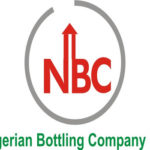The twin charges of the National Deposit Insurance Corporation (NDIC) and the Asset Management Corporation of Nigeria (AMCON) are key issues that need to be addressed urgently to reduce the burden on the operational cost of banks in Nigeria.
Mr Mustafa Chike-Obi, the chairman of the Bank Directors Association of Nigeria (BDAN), said this as a guest on Arise TV business programme, Global Business Report, and monitored by Nigerian Tribune in Lagos.
A 2022 report published by BDAN in collaboration with Proshare titled, ‘Between NDIC and AMCON: Recalibrating Regulatory Roadmaps,’’ stated that “The NDIC charges an insurance premium on bank deposits. In contrast, AMCON charges banks a proportion of total assets remitted to a sinking fund to pay off AMCON intervention payments for acquiring toxic bank loans. The twin charges place an additional operating burden on bank account maintenance costs.”
Citing the report, the chairman of BDAN believed that while AMCON is still in existence, NDIC should not charge an insurance premium on bank deposits. He added that if it does, it should be remitted to AMCON until its tenure elapses.
According to him, “There must be a discussion on the AMCON and NDIC charges with a pathway to resolving the lingering issues around it. The most important issue is a plan that agrees on a cap on the amount chargeable to banks.”
The former Managing Director of AMCON pointed out that the two charges are the second-highest operating costs of banks in the country. He also noted that the position of BDAN on the charges has been communicated in writing to AMCON, NDIC and the CBN.
Speaking on the Cash Reserve Ratio (CRR) he said aside from the CBN peg of 32.5 percent, there is the “Discretionary Cash Reserve Ratio” which adds up to 40 percent.
“For every naira of bank deposit, the CBN keeps 40 percent at zero interest rate. So, the banks reduce their deposit rates and increase their lending rates. In the short run, nobody sees the impact of these things, but in the long run, it kills the economy,” Chike-Obi stated.
The economist decried the fact that Nigerians had a high marginal propensity to spend (as against save).
He noted Nigerians’ high consumption appetite in an era of rising inflation and loan rates at over 26 percent, rendering the cost of money unsustainable over time.
For him, the impact of higher interest rates is that there is less money to lend, which means a higher lending rate, lower deposit rate and lower credit to the private sector.
On the recent announcement of the removal of fuel subsidies, he called on the administration of President Bola Ahmed Tinubu, to craft a holistic policy that indexes the minimum wage to inflation. He also called for targeted interventions geared towards the poor.
READ ALSO FROM NIGERIAN TRIBUNE






